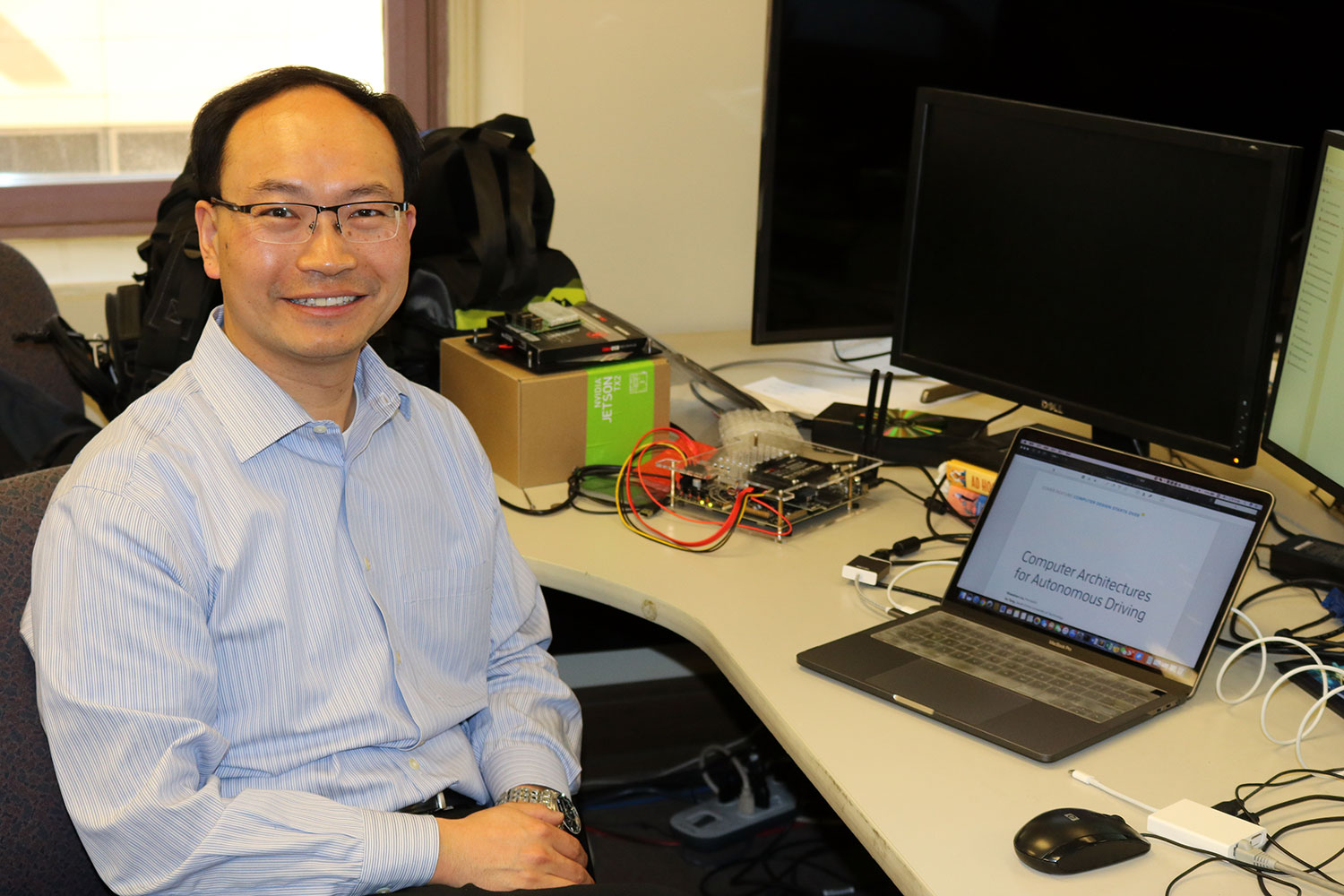Facebook awards Wayne State's Weisong Shi for edge computing infrastructure
 Wayne State University Professor of Computer Science Weisong Shi has received a Facebook Hardware and Software Systems Research Award, as the social media giant continues to invest in research essential to developing systems that will amplify the company's societal impact.
Wayne State University Professor of Computer Science Weisong Shi has received a Facebook Hardware and Software Systems Research Award, as the social media giant continues to invest in research essential to developing systems that will amplify the company's societal impact.
Shi and his contemporaries will each be awarded a research gift of up to $50,000 from Facebook. Only eight researchers' projects were chosen out of more than 170 hopefuls from around the world who applied.
The project, "DIME: A Dynamic Resource-Driven Optimal Scheduling Infrastructure for ML on the Heterogeneous Edge Platforms," brings machine learning applications into the edge computing domain as a way of bypassing some of the issues facing cloud-based applications, such as latency, bandwidth, privacy and security.
"The sheer volume of data generated at the edge of the network fueled by the wide adoption of Internet of Things requires the immediate processing of the data at the edge," said Shi, who also directs the university's new graduate certificate program in cyber-physical systems. "Therefore, many cloud service providers are eager to deploy their applications and services close to the sources of the data, making the edge more intelligent."
However, unlike the cloud data center, edge nodes usually have less computing power. Hardware makers are working to provide more computing capacity for traditional processors (e.g. CPU) and more advanced systems (e.g. GPU, FPGA, DSP) without sacrificing the power budget.
While edge computing's role has typically been to store and send data to cloud systems, there exists a need for systems to employ machine learning - computing and analyzing data - to realize the vision of edge intelligence. Shi's research uses multiple heterogeneous processing units with varying degree of processing power to make machine learning possible on the edge.
"In this proposal, specifically, we undertake the Deep Neural Networks (DNN), a typical ML algorithm widely used for video analytics, such as object recognition and tracking, and build DIME, targeted at facilitating DNN functions on the edge node via model compression, dynamic task partition and optimal resource-task matched scheduling algorithms," said Shi.
Edge computing allows data produced by devices to be processed in real time, a need of organizations in many industries. Shi notes that an edge machine learning algorithm is valuable to Facebook and other digital companies such as Amazon or Microsoft, but also sees its potential impact in other domains, including autonomous vehicles, smart manufacturing and smart health.